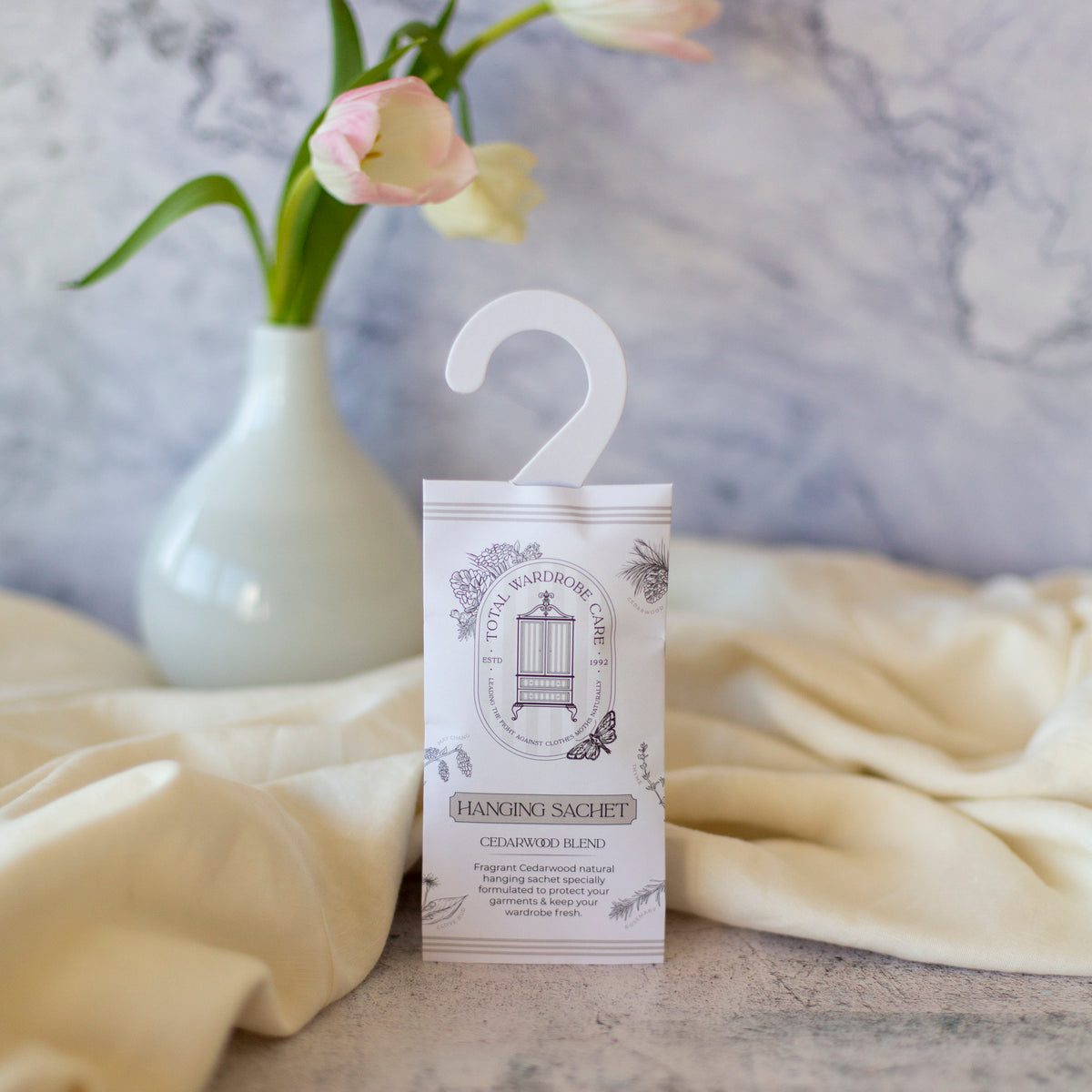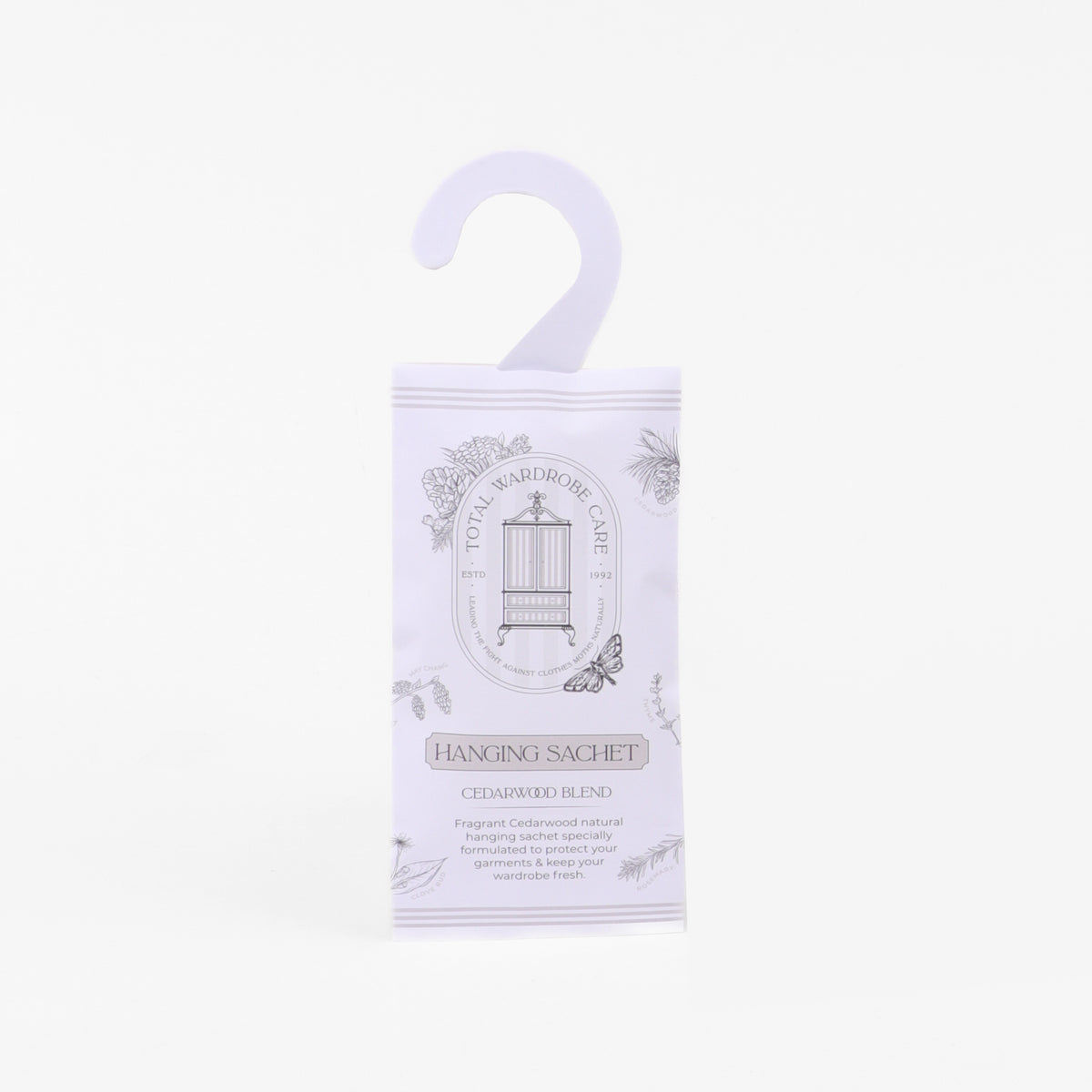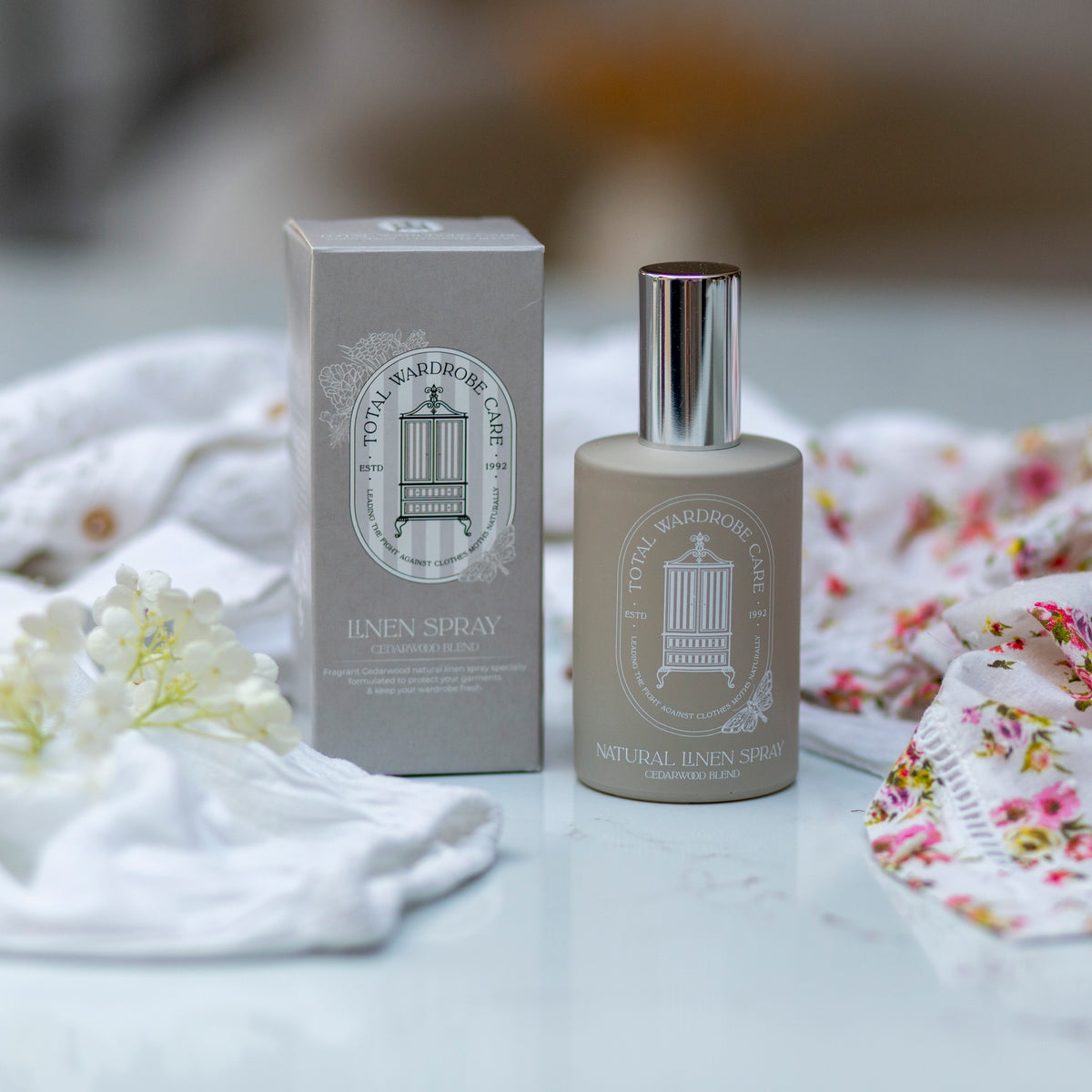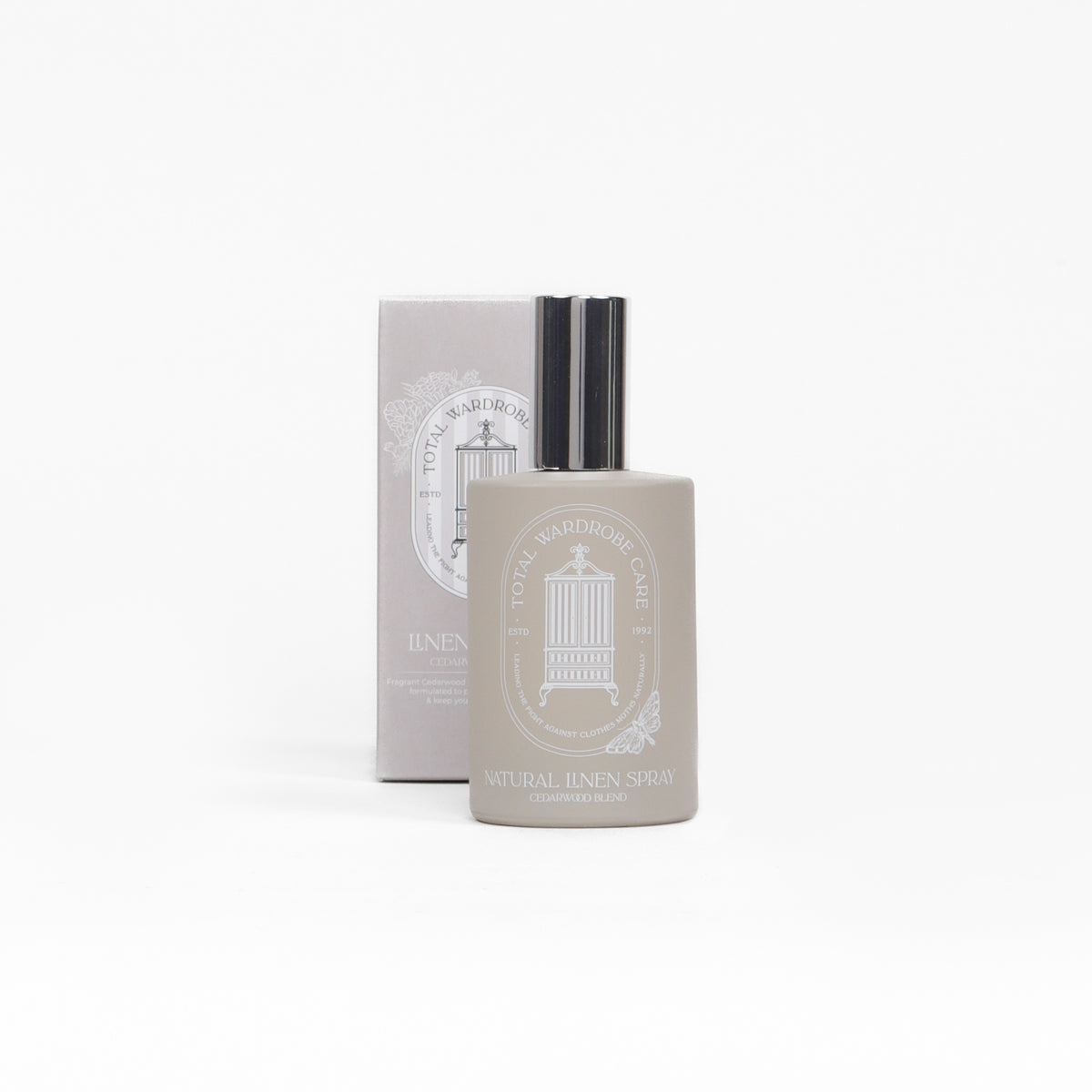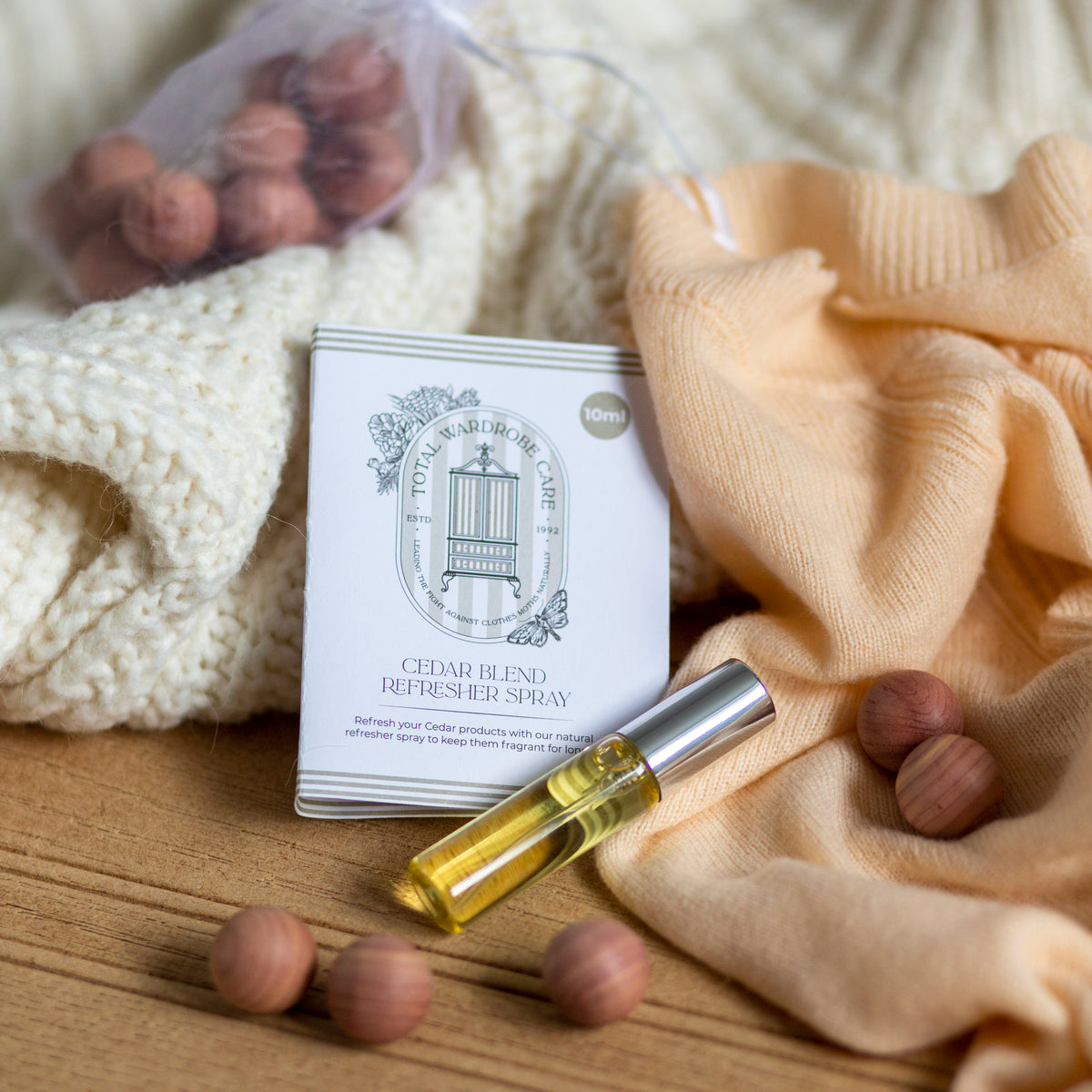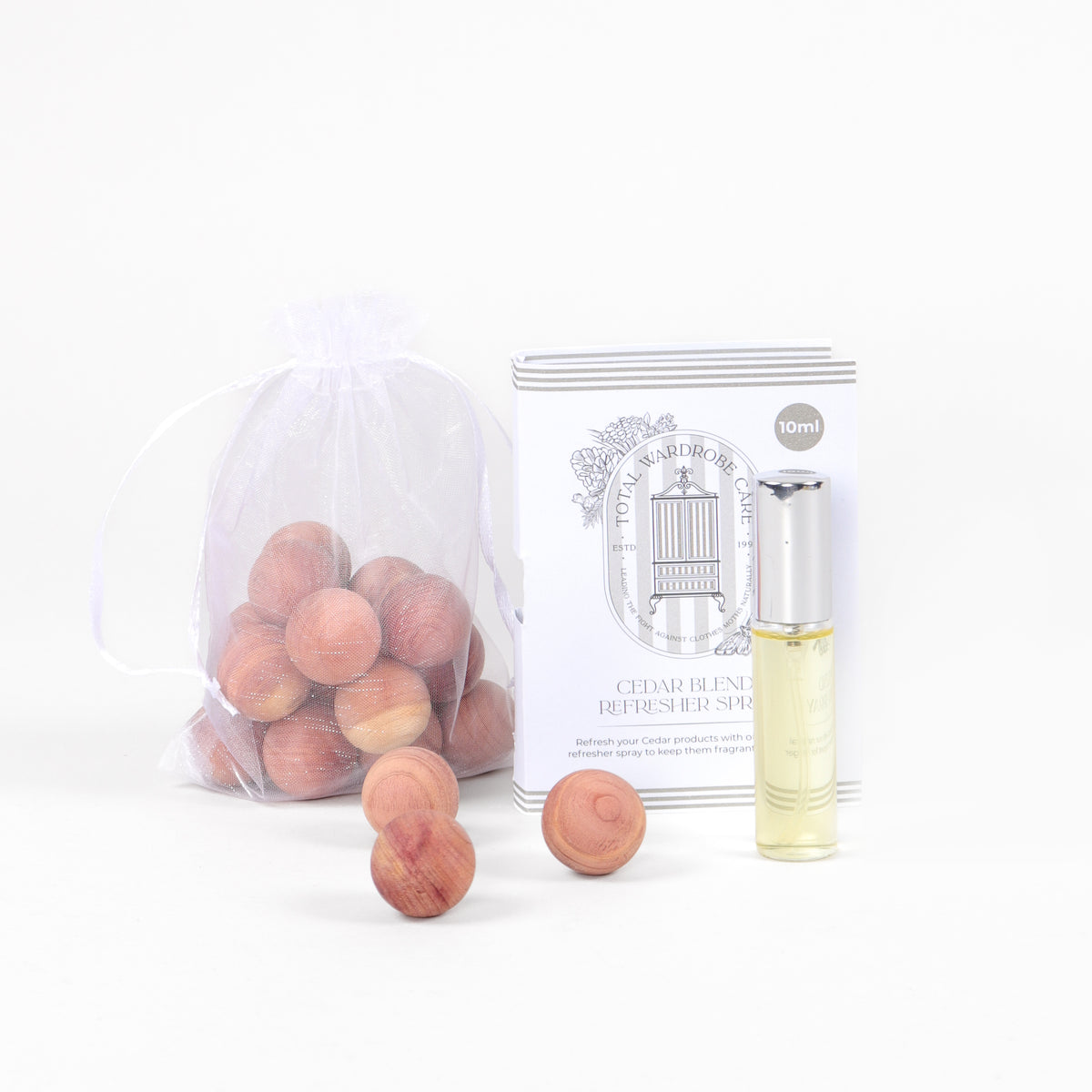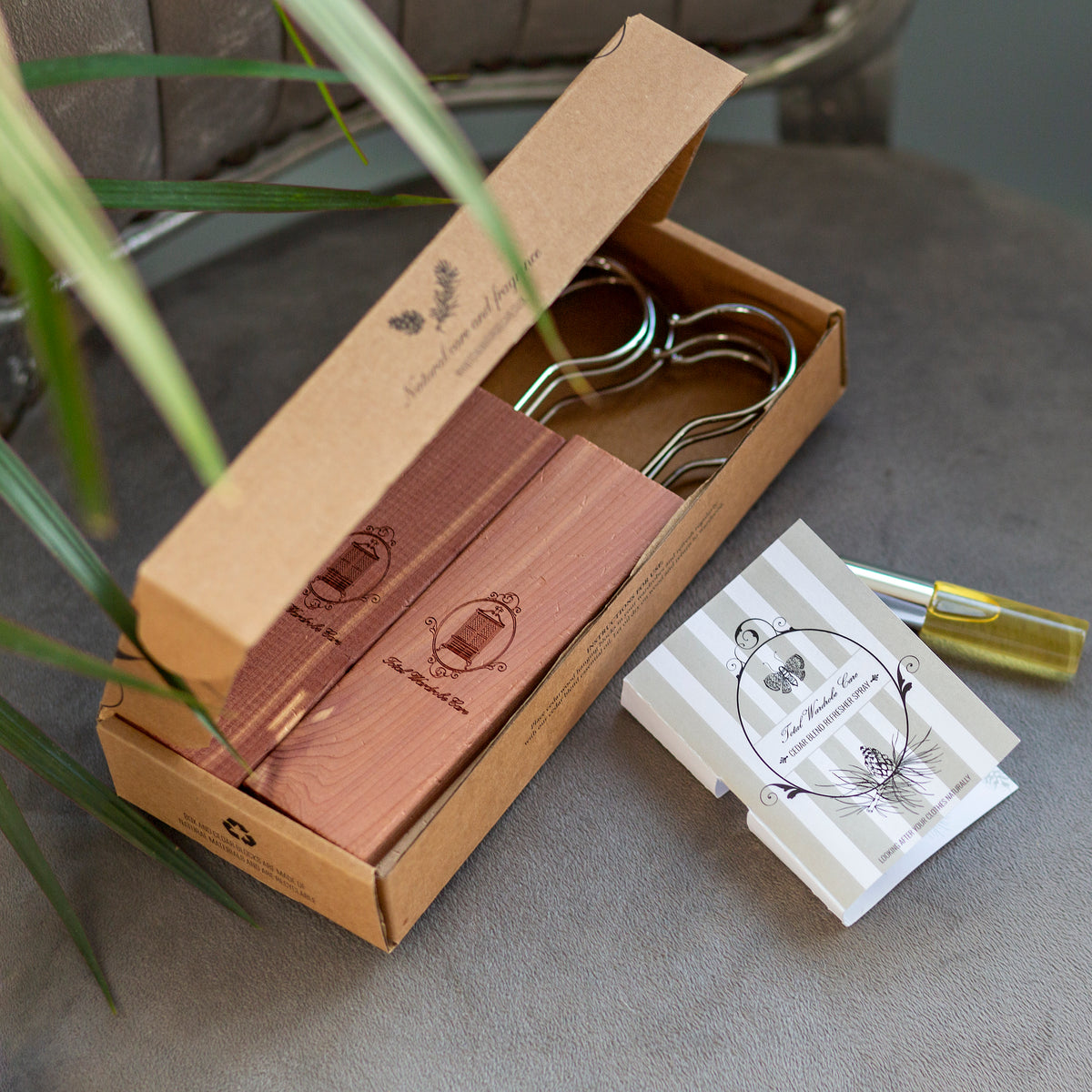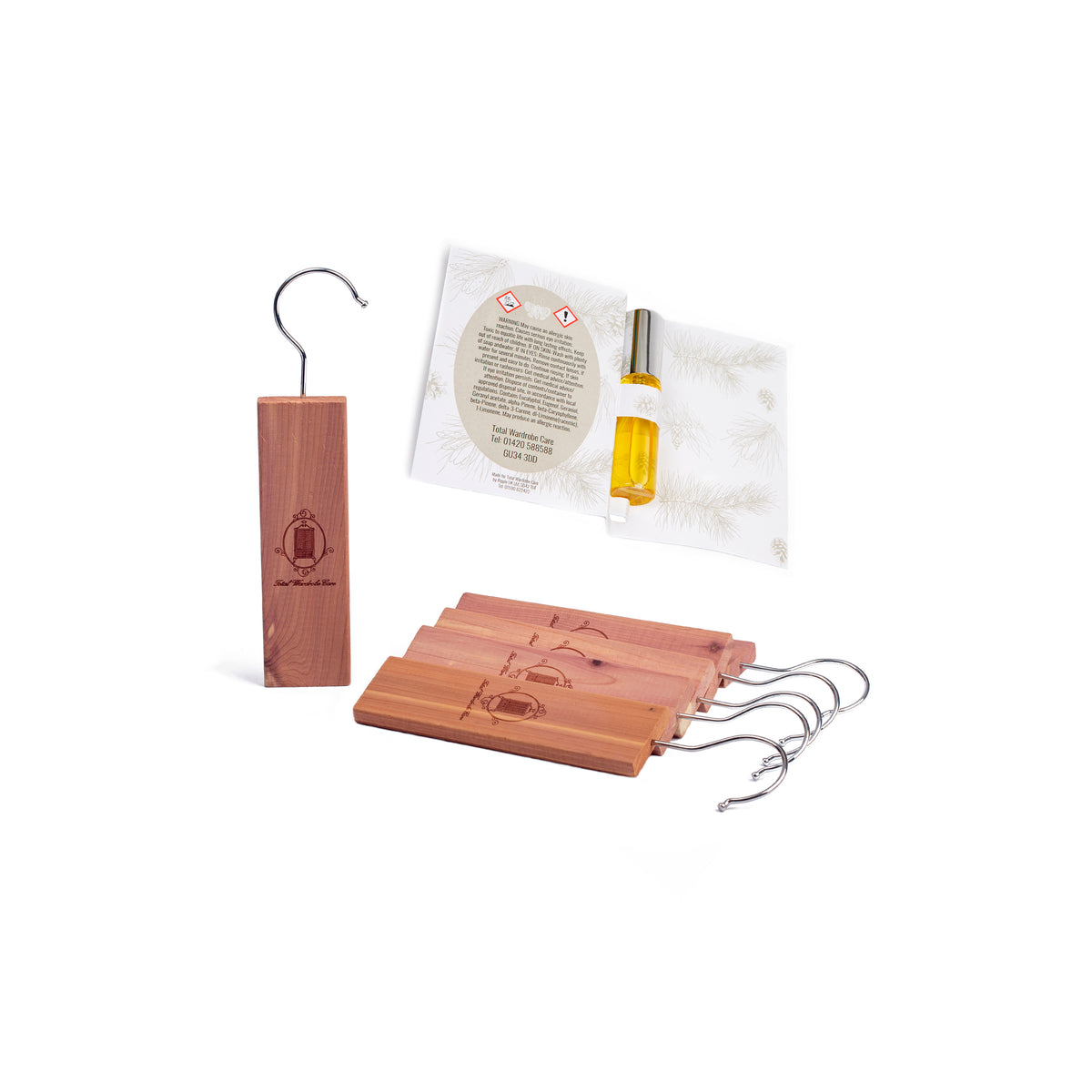Clothes moth prevention has come a long way since the use of moth balls (luckily) Remember the revolting smell meant you wouldn’t want to wear the clothes anyway, but more importantly they were extremely toxic as they used the chemical Naphthalene which is carcinogenic. Thankfully they were banned by the EU in 2008 but with the increasingly milder winters and improved heating and home insulation, the clothes moth has had a resurgence.
AN AGE OLD PROBLEM
However, it’s not a new problem, humans have always had to deal with pests and throughout history, natural products have been used to deter moths.
For example, Patchouli was used in India and this tradition travelled to Europe via the silk road. Victorian silk shawls were packaged with Patchouli leaves to protect them from moths during their travels as a consequence, Patchouli oil and incense stick were used frequently in the 60’s and Carnaby street was awash with the scent at this time for this reason.
The ancient Greeks warded off insects by wearing a crown of laurel in their hair, Europeans used Lavender and the Chinese used May Chang (Lemongrass).
Cedarwood has been used by humans for construction and as a natural insecticide as far back as the ancient Egyptians. They derived their oil from large native cedar trees in Lebanon, in the Middle East. One of the elements found in many Cedar trees is cedrol and depending on the amount used can determine its pesticidal effect on insects.
In more recent history it has been used widely in the USA because the cedar tree is also a native species found in North America and can grow up to 30m in height and live for 1,000 years.
The oil, which is extracted through a process of steam distillation gives off a wonderful, spicy, slightly masculine and soothing aroma. Today Cedarwood oil is used for its aromatic properties, especially in aromatherapy, it can also be used to renew the smell of Cedar.
THE BENEFITS OF CEDARWOOD
It’s the larvae of the moths, not the adults, that are the fabric munching monsters!
However it is the adult moths that are drawn to the dark and undisturbed areas of your house, especially wardrobes, to lay their eggs.
We know that the insect repelling power of Cedar comes from the oil of the tree, which the clothes moth simply does not like the smell of, so will not lay it’s eggs where the fragrance is prominent. The strength of the oil is key. It can evaporate and it’s scent dissipates over time.
Therefore if you do not refresh the products, then the moths may decide to move back in. Our sachets should be replaced every 6 months and you can refresh cedar blocks and balls with our refresher spray to keep the repelling power.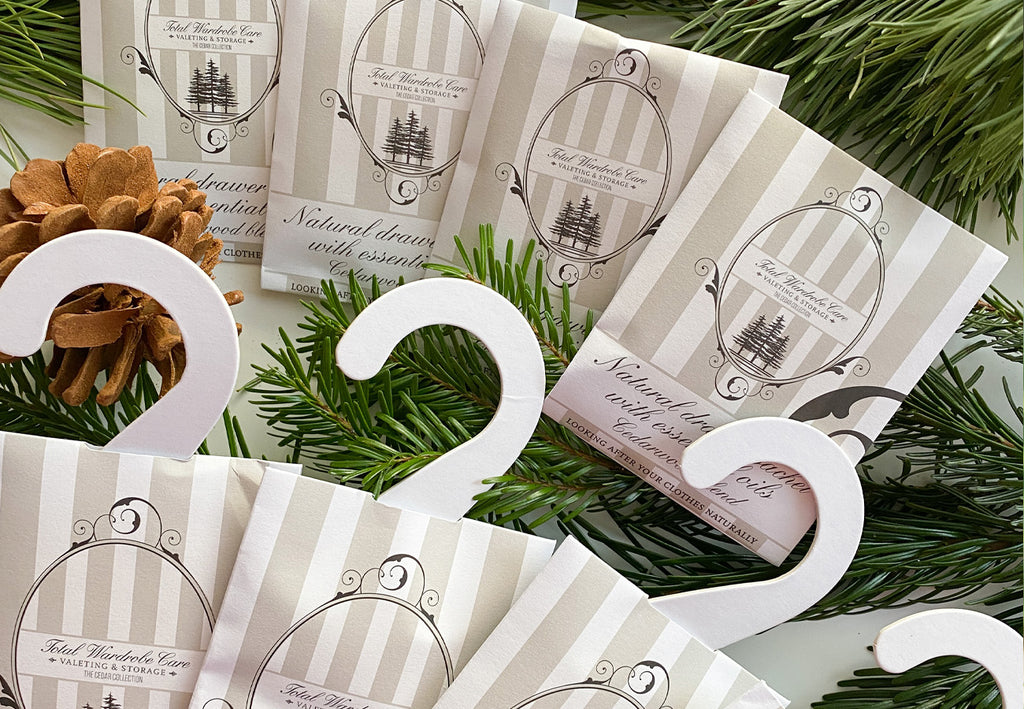
At Total Wardrobe Care, we have been inspired by traditional natural methods. As such our products use a range of plant extracts, essential oils or pheromones to repel, attract and confuse clothes moths.
Having bespoke wardrobes made of Cedar is still out of most people’s reach so we have put together a beautiful range of Cedarwood Products to protect your clothes from moths.
The Cedarwood range includes:
- Cedarwood Shoe Trees

NEED HELP?
We will happily talk you through your moth problem and the best moth repellent as all of our staff are experts. Please don't hesitate to contact us or have a read through our blogs and expert tips.


